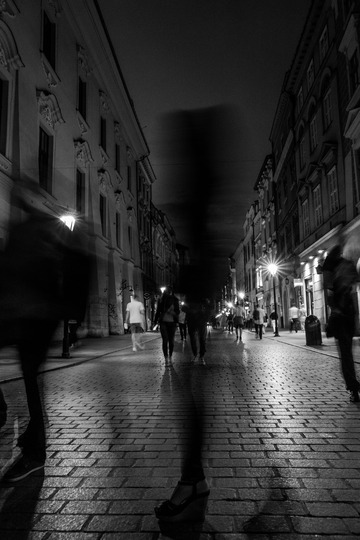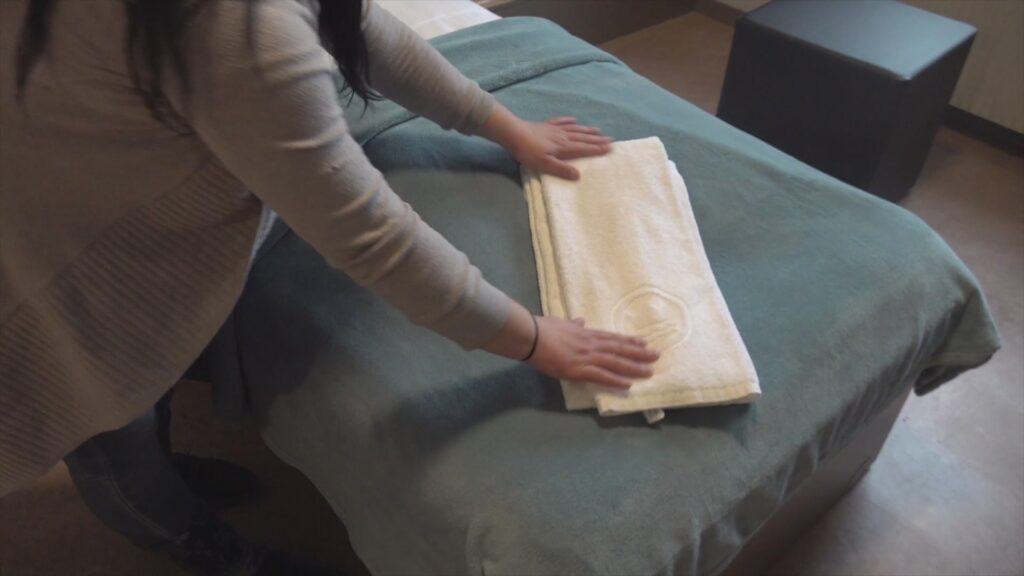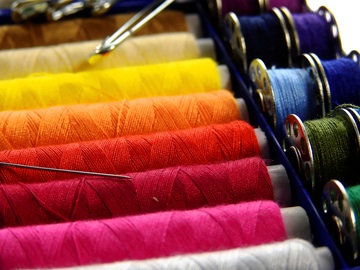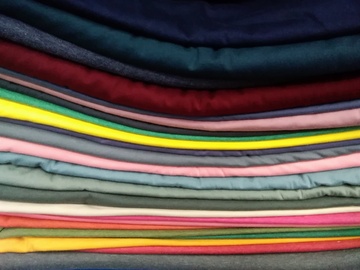
Human trafficking and modern slave labor also exist in Europe. Associations and projects like Hope for the Future offer holistic integration models that help people escape the clutches of traffickers and start a new, fulfilling life. Without qualifications and language skills, however, many end up back in the exploitative workforce sooner or later – which is precisely why they need adequate support. This also includes integration into everyday working life.
HUMAN TRAFFICKING ALSO IN EUROPE
Human trafficking is not only a problem in faraway developing countries – human trafficking happens in the middle of Europe. Especially precarious situations like war, flight and poverty are shamelessly exploited to bring people into modern slavery. They are promised a better life, but in reality they start a life without freedom and full of suffering and despair. Women from Eastern European countries are often the target, as they are tricked into leaving their country with fake job offers, false promises or blackmail. Many women who are brought to a foreign country by human traffickers end up in prostitution, while men do hard labor in slaughterhouses, agriculture, catering or construction. Characteristically, the work relationships are created through deception and coercion, and those affected are dependent and not fairly compensated. Often, the perpetrators introduce people into the country illegally and take away their passports.
In Europe, an estimated 600,000 people suffer from these forms of modern slavery; worldwide, the figure is said to be 21 million. The profits of the perpetrators probably amount to 150 billion US dollars per year.
A NEW CHANCE
Even if they manage to escape from the clutches of the traffickers, they lack prospects. Escape is difficult because the trafficked persons have neither qualifications nor language skills, and some are even illiterate. Even if they have qualifications, they are often not recognized in the country where they are. In addition, many are severely traumatized and addicted to drugs.

In addition to access to therapy, meaningful work is a crucial factor in making a fresh start and integrating into society. With a job, people not only achieve financial independence, but also build social relationships that help them cope with past traumatic experiences.
Creative entrepreneurs in Europe have made it their priority to give victims of human trafficking a realistic chance to get out. We would now like to present some of these projects here.
WORK INTEGRATION WITH HOPE FOR THE FUTURE

Our association Hope for the Future in Vienna offers victims of human trafficking and prostitution the whole package, so to speak. Trafficked persons can attend free German courses and at the same time complete work training. This includes not only learning the craft of sewing, but also core skills that are important for entering the working world, such as punctuality, reliability and flexibility. In addition, Hope for the Future places trainees at a seminar hotel near Vienna. They are trained in cooking, cleaning, gardening and much more.
Since these individuals have often experienced traumatic events, they are accompanied by a social worker during the training period. Thanks to the commitment of volunteers, clients and donations, Hope for the Future has already been able to give many people a new start.
Hope for the Future is a member of the Freedom Business Alliance, a network of companies dedicated to fighting human trafficking and commercial exploitation.
THREADS OF HOPE IN ATHENS
Threads of Hope is also a so-called “Freedom Business”. Similar to Hope For the Future, women in Athens have the opportunity to learn sewing and thus build a new life for themselves. The Threads of Hope project started in 2014 and is structured like a trainee program. The women are trained as seamstresses and can then apply for a job at Threads of Hope, where they can demonstrate their newly acquired skills. The duration of the training is individual and depends on the needs of the individual. The training is completed with an examination and a diploma. The team at Threads of Hope is very heterogeneous, with employees coming from different countries and with different skillsets that they can pass on to the women. Since Threads of Hope also follows a holistic approach, the training does not only include sewing – language and literacy courses are also offered. The seamstresses make bags, home textiles and other accessories using locally produced natural materials such as cotton and linen. Quality plays a major role in both the material and the production. 100% of the proceeds from the textiles go back into the company, so every purchase supports victims of human trafficking.

BAGEL BEJGL IN BELGRADE

The NGO Atina, which supports people who have been victims of exploitation and human trafficking, has established a bagel store as a social enterprise. All profits from the sale of the bagels benefit victims.
The bagel store has even had celebrity visitors. King Charles (then still Prince) and Camilla tried the Serbian bagel during their visit to Belgrade, as did US actress Sarah Wayne.
The money that customers pay for the bagels goes to various training programs for (especially) women who were forced to work in prostitution. They should learn the language and a profession, and thus have the chance to stand on their own two feet and lead a happy, self-determined life.
FREEDOM PROJECTS IN GERMANY
MADE FOR HUMANITY
The German association Made for Humanity also offers sewing workshops – locally and in India. Made for Humanity works closely with the Chaiim Foundation, which supports women in Mumbai. It helps them find therapeutic help, catch up on schooling and learn low-threshold professions. Some women have to be introduced to a “normal” life very slowly. Here, structured schedules and literacy play a major role. Each affected person is supervised according to her own pace and introduced to a daily work routine.
MADE IN FREEDOM
Made in Freedom also supports victims of human trafficking directly in Kolkata, India. In Kolkata alone, about 10,000 women are trapped in prostitution, according to Made in Freedom. The partner company Freeset has already created over 200 jobs with fair pay for the local women. The wage is well above the national average. Freeset produces high-quality T-shirts from organic cotton and in addition to basic shirts, the clothing can also be printed individually. Every T-shirt purchased secures and creates jobs for women who want to or have dared to take the leap out of forced prostitution.

JOB TRAINING IS ESSENTIAL
The best way for victims of human trafficking and forced labor to regain their dignity is to have a job. It is the only way to sustain survivors’ rehabilitation in the long term. And without a path to secure employment, victims of trafficking remain at risk of repeating the cycle of exploitation.
That is why Freedom Businesses are so important and why we need more of them – in Austria, in Europe and all over the world. Governments must take more responsibility in the future and support non-profit organizations and entrepreneurs in putting such social projects into practice.
Translated by Emily Schiffer
#Freedom #Business #VocationalTraining #JobTraining #Exit #ExitAssistance #Vocational #Integration #AgainstHumanTrafficking #AgainstTrafficking #EndExploitation #EndTrafficking #HopeForTheFuture #Austria
